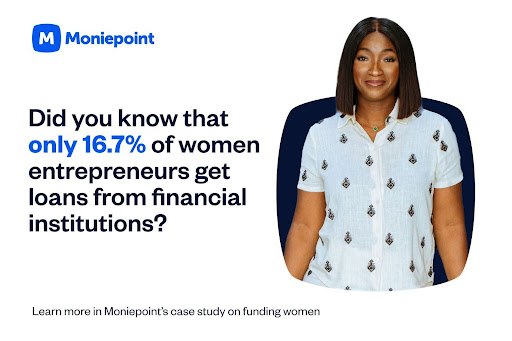

Happy pre-Friday! ☀️
It’s Day 2 of Moonshot by TechCabal and we’re still buzzing from yesterday’s explosive kick-off!
4,000 visitors from across the globe joined us at the Eko Convention Centre where we had an awesome experience discussing AI, cross-border payments, cleantech, and lots more.
Our lineup for day 2 is the reason you absolutely need to be here. Sunil Natraj, CEO of Jumia Nigeria, Tosin Eniolorunda, CEO of Moniepoint, and creators Layi Wasabi and Fisayo Fosudo will discuss commerce, the creator economy, and building companies that last.
Remember to come along with your conference tags so you can check-in without hassle. We’ve also outlined the program schedule so you can plan around it.
We kick off at 9 AM GMT.
See you soon!

AI
AI conversations dominate Moonshot day one

Day one of Moonshot was filled with conversations around AI. From TED-style AI talks to product demos and panel sessions, AI was on the lips of almost every speaker—at least on the main stage. Even Nigeria’s tech minister, Bosun Tijani, joined the conversation.
“We would have failed our people and the future generations if we sleep on artificial intelligence because these are a set of technologies that will control what you think, how you think, and how you do everything,” Bosun Tijani said during a fireside chat.
After the Minister’s fireside chat, Bayo Adekunmbi, a professional with over 22 years of experience in AI, gave a powerful TED talk on how Africa can export the next generation of AI talent. In an age where global companies are falling over one another to secure AI talents, Africa may be the biggest winner. Bayo’s argument has also been echoed by different AI professionals we have spoken with in the past including Nigeria’s tech minister.
Although data has been the biggest challenge in AI adoption on the continent, other challenges, like digital literacy also hinder the application of the technology. However, panellists at this session think there might be a way out—using voice data. This workaround is currently being employed by startups across the continent. Startups now employ agents to gather audio recordings from users.
While the continent continues to find ways to fill its AI data deficit, Yemi Keri, CEO of Heckerbella believes it is the responsibility of you and me to upload and contribute data for AI systems. How? By talking about your culture and languages on social media. Imagine a LinkedIn post talking about your state of origin and culture!
Overall, we had an enjoyable time learning about how AI is shaping personal and business interactions. Tomorrow, the creative economy takes centre stage and we’ll be having creators like Layi Wasabi, Editi Effiong, and Jade Osiberu. See you around!
Read Moniepoint’s Case Study on Funding Women

After losing their mother, Azeezat and her siblings struggled to keep Olaiya Foods afloat. Now, with Moniepoint, they’re transforming Nigeria’s local buka scene. Click here for a deep dive into how Moniepoint is helping her and other women entrepreneurs overcome their funding challenges.
Fintech
Africa’s payments market has a technology problem

Cross-border payments are evolving in Africa. Every day, there is a different pitch from startups springing up, introducing one way or the other for people to send and receive money across borders. Stablecoins; virtual wallets; or using API integrations to make a difference.
Coupled with the growing digital commerce activity on the continent, simplifying cross-border payments is the next bit finance players must crack.
While we’ve come a long way since the days of Hawala and slow wires, high costs, limited coverage, and complexities with fiat currency conversions still exist.
Tighter regulatory oversight and enhanced due diligence have rightly been made part and parcel of moving high-value transactions in and out of borders for any reason.
During a Moonshot panel on Wednesday, experts in the payments ecosystem argued that it is not the regulatory hurdles in Africa, but limited technology to build solutions that allow faster data exchange during these payments, that will slow the development of better cross-border solutions.
“Fintech is what happens when financial systems fail. Cross-border payments, historically, have been plagued by inefficiencies, and that’s where technology companies see a chance to make a difference,” said Guy Stiebel, VP Product of B2B cross-border payments fintech Cedar Money.
On the other hand, “old school” traditional banking players seem slow to catch on to what is trending in cross-border payments, but they might hold the key for this development that we seek.
There is an opportunity in a hybrid approach that combines fintechs’ agility and tech solutions with traditional banks’ reliability and regulatory knowledge.
During the Builders Summit that happened in May, fintech operator and investor Iyin Aboyeji noted, “If the government’s business is your business, they’ll never shut you down. The government also has to make money from what you’re doing.”
Banks have better relationships with regulators because they make the government money. Fintechs arguably have better technology. When fintechs and cross-border payments players start building in ways to align government interests—and that will likely involve traditional finance players—it will reduce regulatory pushback.
Experts remain optimistic that more innovations will happen, despite regulatory dynamics on the continent.
Issue USD and Euro accounts with Fincra

Whether you run an online marketplace, a remittance fintech, a payroll, a freelance platform or a cross-border payment app, Fincra’s multicurrency account API allows you to instantly create accounts in USD and EUR for customers without the stress of setting up a local account. Get started today.
Cleantech
Carbon credit financing can boost clean energy funding in Africa

With cleantech startups poised for explosive growth, carbon credit financing could be a game-changer for the sector. Vladimir Dugin, a senior partner at E3 Capital, a pan-African venture firm, said at Moonshot by TechCabal that African policymakers must establish clear regulations to drive the adoption of carbon credit financing.
In a panel discussion, the speakers noted that the lack of laws and data is slowing the uptake of carbon credit financing on the continent. Though Africa has seen growth in this area, persistent gaps in regulation and data infrastructure need to be addressed.
The global carbon credit market is valued at $909 billion. In Africa, the carbon credit market is projected to reach $82 billion.
As Africa looks to tap into the carbon credit financing market, fund managers and founders believe the continent needs to develop a regulatory framework and avail data to investors.
Introducing Pay with Pocket on Paystack Checkout

Paystack merchants in Nigeria can now accept payments from PocketApp’s 2 million+ customers. Learn more →
CRYPTO TRACKER
The World Wide Web3
Source:

|
Coin Name |
Current Value |
Day |
Month |
|---|---|---|---|
| $60,973 |
– 2.31% |
+ 4.94% |
|
| $2,408 |
– 1.68% |
+ 2.66% |
|
|
$0.08973 |
– 1.23% |
+ 121.20% |
|
| $140.49 |
– 2.31% |
+ 4.94% |
* Data as of 06:20 AM WAT, October 10, 2024.
Opportunities
- The Africa Prize for Engineering Innovation is open to African innovators creating engineering solutions to local challenges. Innovators from sub-Saharan Africa should pitch viable engineering products or services that will have social or environmental benefits to the continent. Apply for the chance to get up to $25,000 in funding.
- For all our fintech friends, please join us in collaboration with This Week in Fintech for an exclusive happy hour hosted with SmileID, Owo, Paystack, and PalmPay. Join us here.
- Learn about 10 HR mistakes to avoid as a tech founder, hiring manager, or business owner. To mark the first anniversary of HR-Clinic, Emmanuel Faith, a People and Talent Leader, shares ten pivotal lessons for business leaders. HR-Clinic—founded by an award-winning and globally certified human resource professional Emmanuel Faith—offers quick, scalable HR solutions to common challenges in the tech ecosystem, providing Fractional HR consultancy to founders in need of immediate support. Book a session here.
Issue virtual USD cards for you and your customers

Do you want to issue virtual USD cards for your customers and business expenses? Use Kora’s APIs to issue cards, customise your card program, and set your customers’ funding limit to your risk level. Get started here.

Written by: Faith Omoniyi, Emmanuel Nwosu, and Ephraim Modise
Edited by: Olumuyiwa Olowogboyega
Want more of TechCabal?
Sign up for our insightful newsletters on the business and economy of tech in Africa.
- The Next Wave: futuristic analysis of the business of tech in Africa.
- Entering Tech: tech career insights and opportunities in your inbox every Wednesday at 10 AM WAT.
- TC Scoops: breaking news from TechCabal
P:S If you’re often missing TC Daily in your inbox, check your Promotions folder and move any edition of TC Daily from “Promotions” to your “Main” or “Primary” folder and TC Daily will always come to you.























